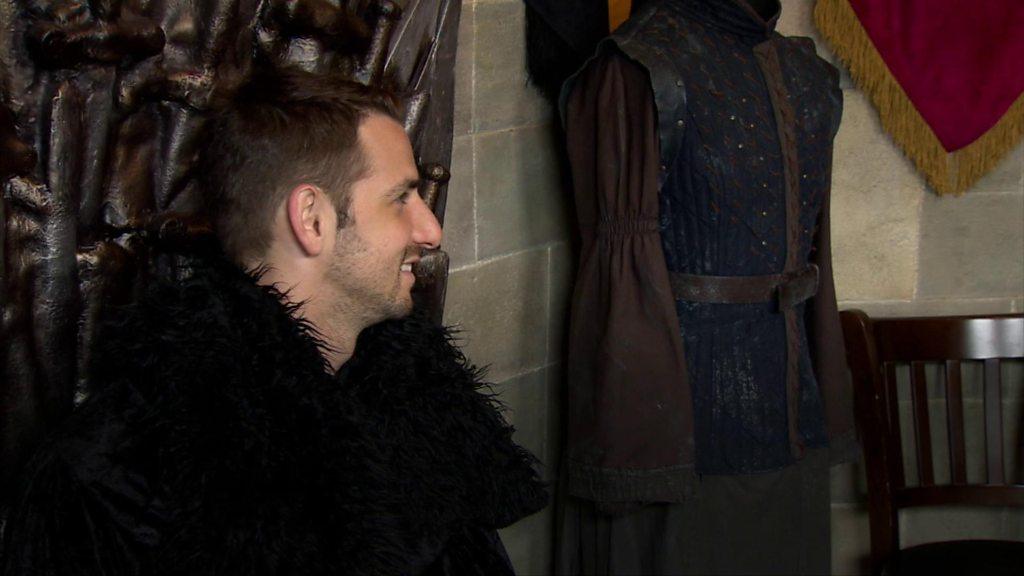Game of Thrones is 'game changer' for NI tourism
- Published
- comments
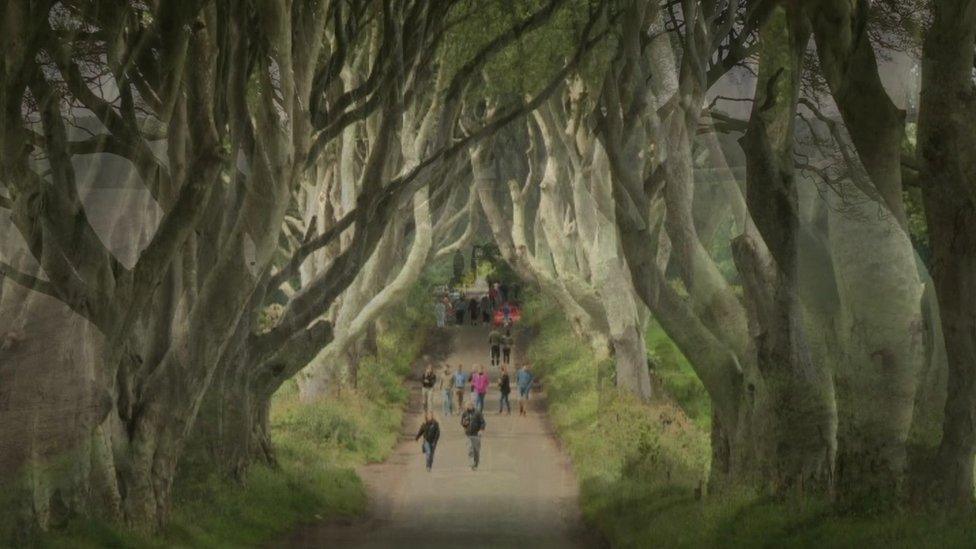
The Dark Hedges in Armoy in County Antrim draw crowds of tourists every day
Its long-awaited finale has been and gone but Game of Thrones is still big business for Northern Ireland.
It is estimated to have brought £251m into the economy since production began in 2010, according to the region's film agency NI Screen.
Over the same period, the organisation gave £15.95m in production funding to the hit fantasy drama series.
But that was a worthwhile investment, says NI Screen's chief executive Richard Williams.
"It's been a game changer for the screen industry," he said.
"This is the biggest show of the decade and certainly within industry terms everyone knows that it's being made in Northern Ireland.
"That has revolutionised our standing in the screen industry all around the world."
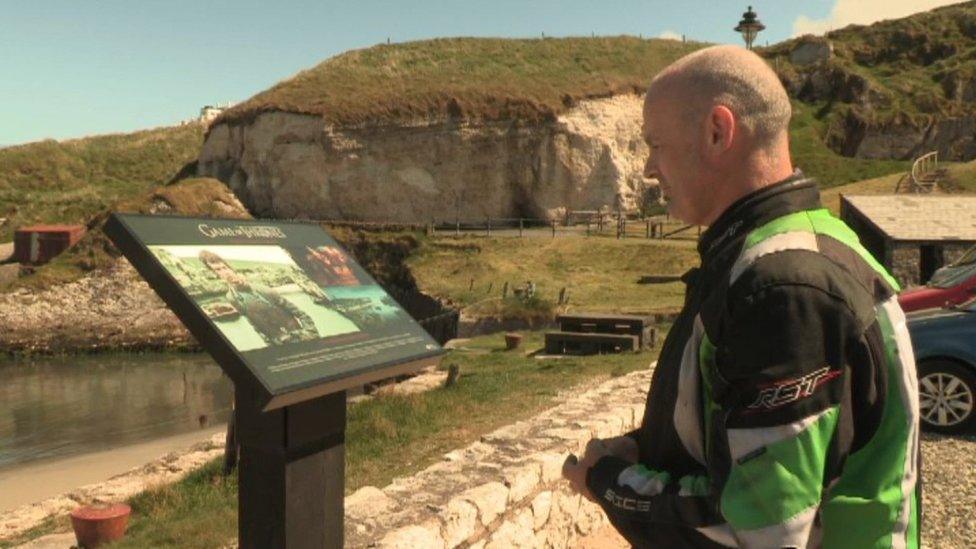
County Antrim destinations like are Ballintoy Harbour have become tourist hotspots
On what the future holds for filmmaking in Northern Ireland, Mr Williams says "If we can't collectively sell the supply chain that was behind Game of Thrones, the crew, the studio, well then what can we sell?"
Figures from Tourism NI, the region's tourism development body, paint a similarly upbeat picture.
They suggest that 350,000 people come to Northern Ireland every year just for Game of Thrones - that is one in six leisure visitors.
It is estimated they spend £50m each year.
'Driving people to NI'
The HBO production has turned Northern Ireland filming locations into tourist hotspots.
Tour operator Caroline McComb hosts Game of Thrones tours every day of the year with one exception - Christmas Day.
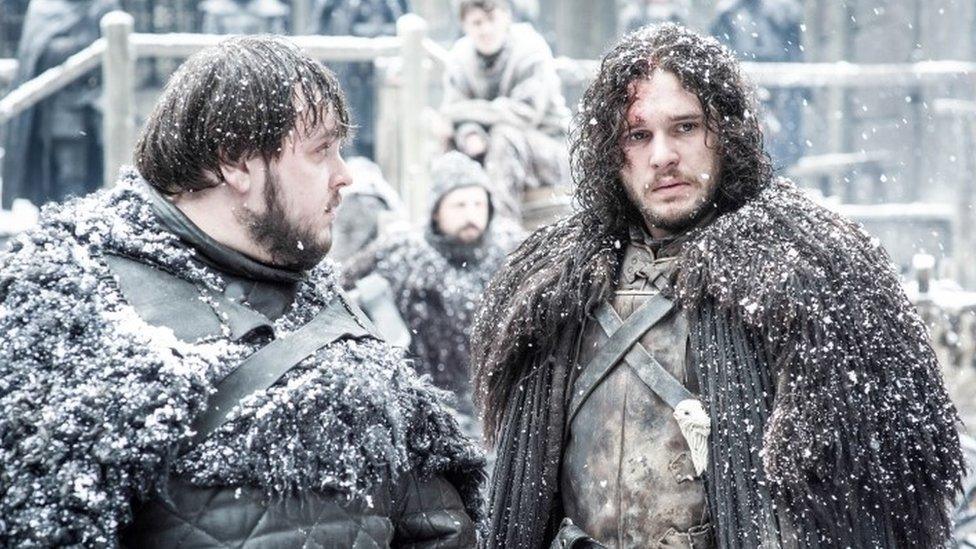
Game of Thrones - featuring Kit Harington (right) as Jon Snow - is a global phenomenon
"For us, Game of Thrones has been that big game changer we always hoped we'd get," she says.
"It's the thing driving people to come to Northern Ireland."
She does not believe business will be affected by the end of the show.
"I don't see any reason why the numbers will dwindle.
"We've only to look at what Lord of the Rings has done for New Zealand to see that there's absolutely no reason why we can't continue with this in Northern Ireland," she said.
Sean McLaughlin took over at the Fullerton Arms in Ballintoy, County Antrim, four years ago.
His restaurant is a refreshment stop for many of the Game of Thrones tours along Northern Ireland's north coast.
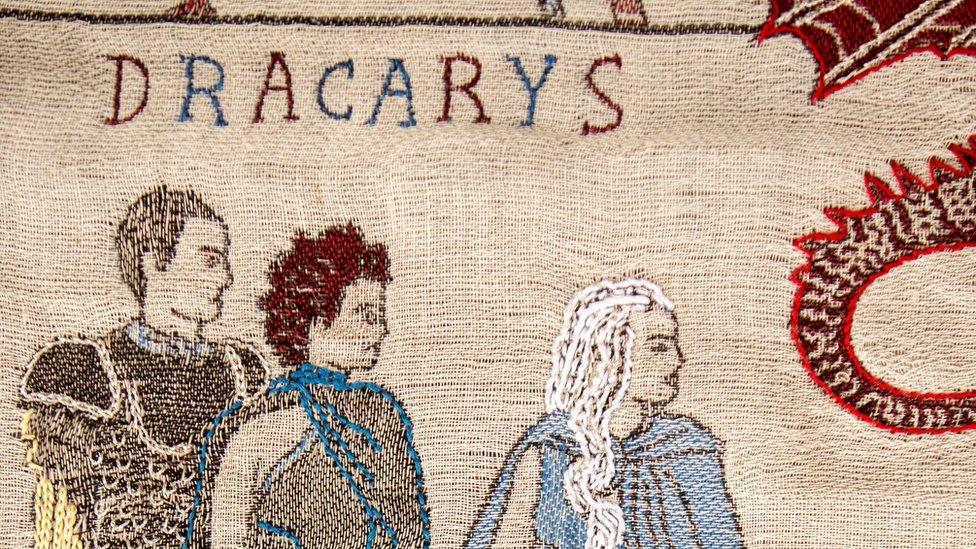
A tapestry chronicling the Game of Thrones story went on display at the Ulster Museum last year
"It's gone from one tour bringing in about 18 covers per day to serving approximately 110 to 130 covers per day - just for Game of Thrones fans," he says.
"I think we'll see numbers continue to grow - the lasting legacy of what has been created is phenomenal."
'Buses never stop'
But the influx of large numbers of tourists to some small villages has caused problems.
Marian Boyle is a resident in Cushendun, County Antrim, and says tourist coaches are disrupting the residents' lives with a "lot of intrusion".
"I'm all for tourism in Northern Ireland but this sort of tourism - herding people in and out - they come to see one thing and that's it," she said.
"For local residents it is frustrating - the constant buses never stop.
"At the weekend when it's busy you can be driving through hundreds of people who just don't see this as a road."
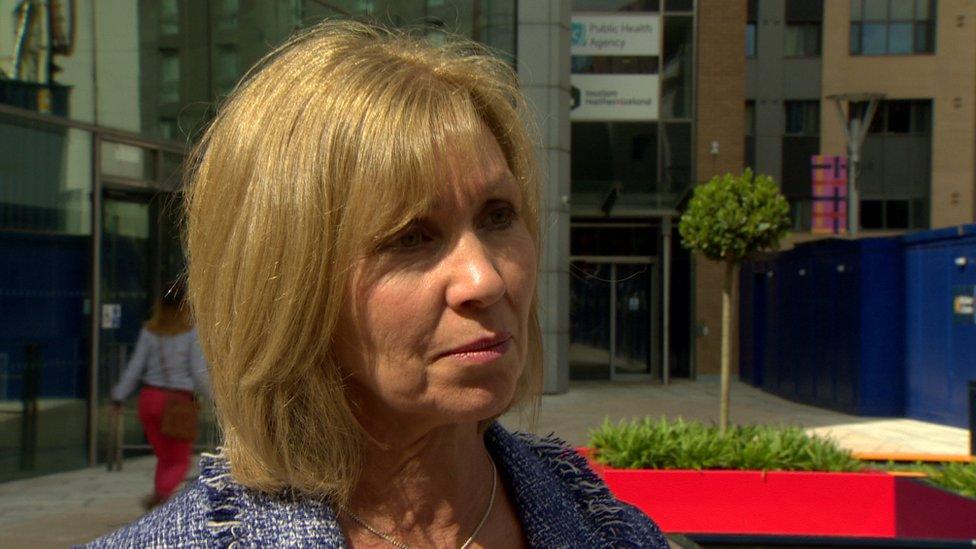
Management of visitors at Game of Thrones locations needs to be considered, says Judith Webb
There are also issues at the Dark Hedges outside Armoy, County Antrim.
Just 10 seconds on Game of Thrones was enough to make it a tourist attraction.
Congestion and damage to the trees led to traffic being banned but that is not always obeyed.
More Game of Thrones attractions are in the pipeline and a prequel to the show is being filmed in Northern Ireland.
But tourism bosses admit there is a balance to be struck.
Judith Webb, who is responsible for screen tourism at Tourism NI, says: "Success has meant that we really do need to consider visitor management issues and work is happening to manage those situations."
The show has "transformed Northern Ireland into a leading international screen tourism destination", she adds.
"What's planned will extend the whole life of Game of Thrones - there is a lot of investment moving forward and we're hugely positive about the future."
Steven Rainey will be exploring the legacy of Game of Thrones here in Northern Ireland on Radio Ulster this Sunday 26 May at 12:30 BST. The programme will be available online shortly after broadcast.
- Published20 May 2019

- Published24 September 2018
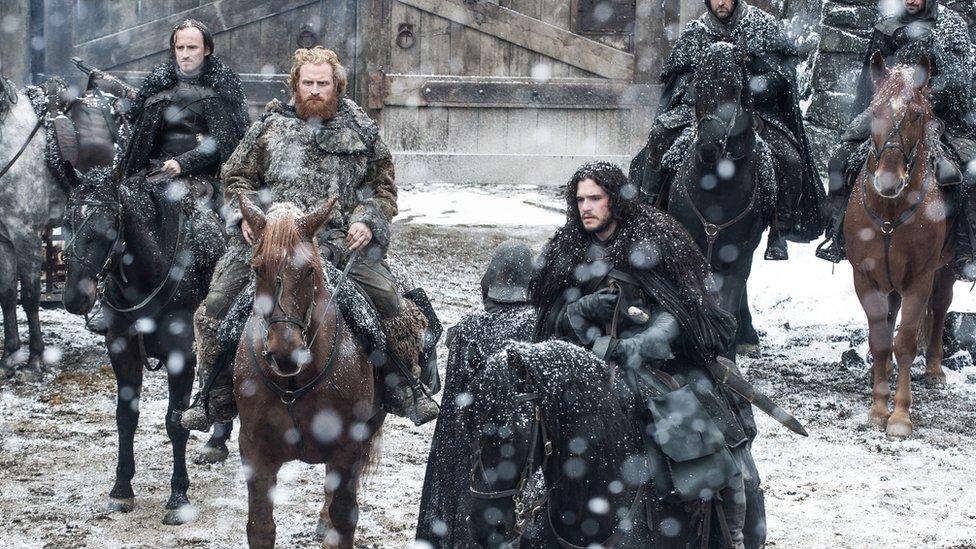
- Published20 May 2019
